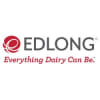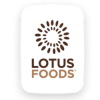It's taken Kodiak Cakes nearly 20 years to evolve into the popular brand it is today. The family's original whole-wheat hot cake recipe was developed by CEO Joel Clark's grandfather, handed down to his mother — who sparked the idea of selling the mix to neighbors — and refined by Jon Clark, Joel's brother and company co-founder.
Formally launched in 1995, Kodiak Cakes was named for the coastal Alaskan town Jon Clark had visited and which personified the rugged, outdoorsy feel he wanted to bring to the brand. The company chugged along for quite a few years after that, slowly winning fans as the brothers successfully made sales of its original mix at local ski areas and through regional stores. The company's initial products were picked up by Safeway in 2004 and Target in 2012, but beyond that, the national stage remained elusive.
The tipping point came in 2014, when Joel Clark went on the TV show "Shark Tank." After making his pitch to the investor panel, he ended up walking away from all offers for 10% of the company after being told he had overvalued the business. Following his appearance on the show, "People went to Target and emptied the shelves. It was crazy and hard to keep up with," Clark told Food Dive. Sales of Kodiak Cakes later tripled the revenue projections he had made on the show.
Today, revenues are approaching $100 million, and the company's whole-grain flapjack and waffle mixes and other products are available in thousands of stores nationwide, including Costco, Albertsons and Whole Foods — in addition to Target and Safeway. Kodiak products are also sold online via Amazon.com. The company is based in Park City, Utah, and is majority-owned by the Clark family, including Joel's parents and Jon, his brother and co-founder.
Food Dive spoke with Joel Clark and Cameron Smith, Kodiak Cakes' chief operating officer, in late January about the strategies that led to the company's success and their plans for the long haul. This interview has been slightly edited for length.
Food Dive: How did you finance operations in the beginning?
Clark: [My brother] bought an old truck and sold it ... He made $1,400 and thought "that's enough to buy some ingredients and put this pancake company together." ... We didn't have any family money to put into it. When I took the company over two years later, the total revenue was like $29,000, so it was bootstrapped for a lot of years.

Food Dive: Did you anticipate the positive consumer response?
Clark: Not at all. [That's] what literally kept me in this business. We got a lot of handwritten letters into our P.O. box, and people would write in and say, "This is the best pancake mix I've tried and, by the way, I love that it's healthy, too." They were so grateful that it was healthy and good and easy to make.
Smith: Within the first couple of days working with Joel, he told me, "People love this stuff. It's really good." I thought, "This guy's drinking the Kool-Aid, but we'll see." Then someone calls and says, "We're all out. Can you track my shipment? I love your guys' stuff." I was like, "Holy cow!," and those [kinds of calls] just kept coming in and coming in. One way to fuel your own passion is to see how passionate other people are about it.
Food Dive: What did your products bring to the marketplace that wasn't already there?
Clark: When Jon first put this together, his goal was to create a healthy pancake mix that tasted good and was easy — taste and nutrition in one. He felt he was able to do that with Kodiak Cakes, and I feel that position is still valid today [that's] and why it works. The feedback is still the same, and now we put protein in it, and you only have to add water.
Food Dive: How did you get national distribution for your products?
Clark: We started out in ski areas like Park City, where we are today. [Then] we went to Sun Valley, Idaho, and Jackson Hole. Little by little, we got the regional grocery stores around us. Our first national player was actually Safeway in 2004. We only had one SKU at the time, and that's when I quit my job. It was the original whole-wheat flapjack mix.
Food Dive: How many stores are your products in now? Do you plan to add more?
Smith: We're [at] just about 12,000 stores on the protein mixes. There's a lot of other ones we haven't totally gone after. We're launching into baking really hard this year with brownie mixes, cornbread and more muffin mixes, in addition to frozen pancakes and frozen waffles, and we're trying to get our cups and mixes up [in distribution].
Food Dive: How did Kodiak Cakes dethrone Aunt Jemima at Target stores?
Clark: Our "Shark Tank" episode aired in 2014 in April and that was cool because it really concentrated sales at Target. People went to Target and emptied the shelves. It was crazy and hard to keep up with. Then we launched Power Cakes, which hit shelves perfectly in terms of timing of the brand and what people were looking for. From June to September of 2014, it became the best-selling pancake mix, beating Aunt Jemima by 20%. We didn't actually cannibalize Aunt Jemima. Their sales never really dropped. We weren't trying to get their customers. Our customers aren't their customers.
Food Dive: What role do e-commerce channels play for your company?
Smith: We're actually doing a lot. Just over a year ago, we brought on an e-commerce manager. He has gotten us on Amazon and now Thrive Market ... With all the shifts in how millennials shop, and with shopper insights ... we know we need to be where millennials are. We're doing a lot on Instagram and Facebook, and we're putting together a plan for Pinterest.

Food Dive: You've had some outside investment. Do you expect to solicit more?
Clark: We don't know. We think about that. We are growing really, really fast, and we'll probably have an 80% growth rate this year. This year we think we can do without, but it could change.
Smith: If we do, it would be to grow as well as possible, to bring more categories, to be sustainable and last for a long time.
Food Dive: How's your revenue growth? Is the company profitable?
Clark: Last year it was about 80% [growth] as well. I would just say we're approaching $100 million. That's just our revenue. We are profitable. We are investing heavily into growth, too. ... We want a solid company that will be around forever. We try to make decisions that are long-term thinking and not short-term thinking.
Food Dive: "Shark Tank" said in 2014 that you had overvalued the company, but your actual revenues turned out to be triple your forecast. What do you foresee in the next few years for the company?
Our goal is to basically become the best deal the Sharks ever missed. ... We have an internal goal to build Kodiak Cakes into a billion-dollar brand over the next 10 years.

Joel Clark
Co-founder, Kodiak Cakes
Clark: Our goal is to basically become the best deal the Sharks ever missed. We're hoping we can earn that award. ... We have an internal goal to build Kodiak Cakes into a billion-dollar brand over the next 10 years.
Food Dive: Your core products are whole-grain, high-protein pancake mixes, cups and syrups. Besides the brownies and cornbread mixes, are you adding to that?
Clark: We're doing fruit syrups. Our angle on those is to do real fruit purees using cane sugar, not corn syrup. They have about half the sugar of pure maple syrup.
Food Dive: Any plans to sell to a larger company?

Clark: We don't have plans right now. There are times when we do wonder, "Could that make sense for growth? Could a bigger company helps us get to $2 billion?" Then we think about the culture here and our team. Our No. 1 business priority is building a great team that loves to work together. That's what keeps us going right now. Growth is fun and products are fun, but the team is what gets me out of bed. ... There is a fear that we would lose some of that if we sold. But we haven't been [approached], not formally. We've had a couple of tire-kickers at trade shows.
Food Dive: If you did sell, who would be the right partner?
Clark: Kellogg's is kind of interesting because of the frozen waffle capabilities that they bring to the table ... because they've got Eggo. Another is General Mills. Obviously they do a ton with baking mixes and flours and stuff. Kodiak Cakes obviously brings a lot of diversification to those guys and brings a lot of categories into the center store where there's innovation. Those are two examples.
Smith: We're not necessarily launching innovation with the thought in mind of launching so this company might strategically want to buy it. We launch because a category needs it and is tired. Some brands have been like cash cows for the buyers. They don't have to promote it and are now forced to rethink it. We come in with real innovation.
"We're not necessarily launching innovation with the thought in mind of launching so this company might strategically want to buy it. We launch because a category needs it and is tired."

Cameron Smith
Chief operating officer, Kodiak Cakes
Food Dive: When you reflect on the past 20 years, what would you change?
Clark: We've been in business just over 22 years now. I think one thing that might have been helpful is to raise more money earlier in the process ... Looking back, we had some really good stuff, a good culture with good employees ... The point is, [you] need to have a little confidence and believe in yourself and what you're doing. You've got to believe in yourself and not be afraid to be a leader in the market even if you don't have a whole lot of experience. Looking back, I wish we'd had a little more confidence.
Smith: Pushing innovation faster. For the longest time it was two items — pancake mix and then muffin cups. I could see a more holistic approach with more categories faster rather than focusing on one or two items.
Food Dive: Anything you want to add?
Clark: The real success factor for us now is the culture that we have — where people love to be here and want to be here. We've shared a little bit of equity with everyone. I have to say that's the reason for our success.





















